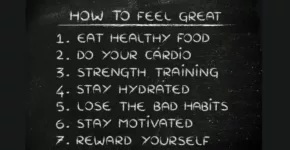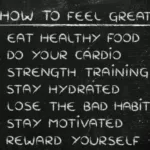Do you ever feel like you’re drowning in your messy home? Disorganized living spaces can make it feel difficult to relax or even breathe at times. But why is this? According to scientists and psychologists, messiness and disorganization actually have profound effects on the human brain.
The Impact of Disorganization on the Brain and Body
Physical disorganization can happen in an instant, but it’s ultimately the byproduct of years and years of work. As humans, we are collectors and we tend to save up little items here and there. Compounding this issue is the fact that we don’t like to get rid of things. According to a Yale research study, the two areas in the human brain associated with pain, the insula and anterior cingulate cortex, both light up in response to letting go of items you own.
“This is the same area of the brain that lights up when you feel physical pain from a paper cut or drinking coffee that’s too hot,” entrepreneur Mikael Cho says. “Your brain views the loss of one of your valued possessions as the same as something that causes you physical pain. And the more you’ve committed emotionally or financially to an item, the more you want to keep it around.”
Mental disorganization is also a problem and tends to be a chronic issue for many people. This type of disorganization is characterized by having multiple thoughts racing through your head at one time and being unable to focus on any one thing at a time.
But did you know that both physical clutter and mental disorganization both negatively impact your ability to be productive and sane?
“When your environment is cluttered, the chaos restricts your ability to focus,” minimalist Erin Doland says. “The clutter also limits your brain’s ability to process information. Clutter makes you distracted and unable to process information as well as you do in an uncluttered, organized, and serene environment.”
Three Ways You Can Keep your Home More Organized
The good news is that cleaning and organizing can improve both your physical and mental health. Specifically, clearing away clutter can lead to reduced stress and depression, healthier eating habits, improved relationships, a boost in productivity, better sleep, weight loss, and more. Sounds pretty good, right? Here are some practical ways you can declutter your life with minimal effort:
- Throw away and recycle. You’d be surprised by how many things you own that you could easily get rid of. Make it a point to pick one room each weekend for the next few months and take inventory. Make a pile for throwing away, keeping, and recycling. This is a quick way to unload some junk.
- Rent a storage unit. As noted, getting rid of sentimental things is often difficult. But what do you do when things you don’t use are filling up your house? Renting a self-storage unit is a cost-effective way to save space without throwing things away.
- Keep a day planner. Do you find it difficult to remember everything that needs to be done? Keep a day planner with you at all times (a paper or smartphone version works) and jot down everything as you think about it. This allows you to free up your mind to focus on the task you’re doing at the moment.
These three simple tips will help you avoid unnecessary clutter and enjoy a life that it’s little less “busy.”
Organization Matters More Than You Know
Organization isn’t something that’s only for “neat freaks.” In order to remain mentally and physically healthy, you need to maintain some semblance of organization in your home. Take one small step at a time and you’ll discover that it’s easier than you originally anticipated.








